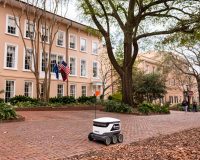
Silicon Forest, Silicon Prairie, Silicon Beach, Silicon Hills, Silicon Sandbar. Nice ideas, all of them. But let’s get real. Startups anywhere outside the two major tech hubs of Silicon Valley and Silicon Alley have even more trouble attracting serious venture capital than they do finding a food truck with a decent bulgogi burrito.
Location Still Matters
It’s a central paradox of our time. The Internet and all its associated machines and gadgets enable anyone to be connected to anyone else -anytime, anywhere. But startups located anywhere other than a high-tech center may as well be pitching for investment in the Silicon Taiga. (Yes, there is one, don’t ask where.) Because relationship networks and personal contacts still matter.
Judy Sindecuse, CEO and managing partner at Capital Innovators, a startup accelerator in St. Louis, is trying to crack the code. Her organization runs a 12-week mentorship program for promising entrepreneurs in the St. Louis area and provides them $50,000 in seed funding. But then comes cap-and-gown time – and the hard part for Capital Innovators graduates: attracting real investment from bigtime VCs on the coasts.

That experience is consistent with research conducted by Aziz Gilani, a director at Houston venture capital firm DFJ Mercury. Last year, Gilani ran a study of 29 North American accelerators for the Kauffman Fellows program. He found that 45% of them produced not a single graduate who went on to raise venture funding.
Getting Past the Flyover Syndrome
“We’ve been very successful in our follow-on seed funding,” says Sindecuse. “We’ve had 13 companies graduate from the program and we’re somewhere between $7 million and $9 million in follow-on funding for our grads. But that follow-on money has come primarily from local angels and high-net-worth individuals in our network. What I need to solve is the A round of institutional venture funding.”
One plank in her pitch: it costs less than half as much to buy into a company in St. Louis than it does in Silicon Valley. She just has to convince the big-money folks that there are smart founders with promising companies around the U.S., not only in the graduating classes at TechStars and Y Combinator.
In the meantime, Sindecuse is working to develop a strong local investor community that can support companies coming out of Capital Innovators. A group of high-net-worth individuals in the St. Louis area recently banded together to create a seed stage fund called Cultivation Capital. The fund has promised at least $1 million over the next year to Capital Innovators grads.
Two Capital Innovators companies that have taken decent follow-on seed rounds are LockerDome, a social network that connects sports fans and athletes, which raised $2 million after over-subscribing on a $1 million round and plans to raise between $5 million and $10 million in the next year; and JBara Software, which makes customer-management software and raised $250,000.
The Missing Piece
But Sindecuse admits that the series A venture capital round “is still the missing piece and is something our region has always struggled with – building a network with the tech centers on the coasts. We have the local component nailed but getting that big round of capital is the next piece of the puzzle.”
If she can actually solve that puzzle, she’ll be one of the first to do so.
St. Louis image courtesy of Shutterstock.

















